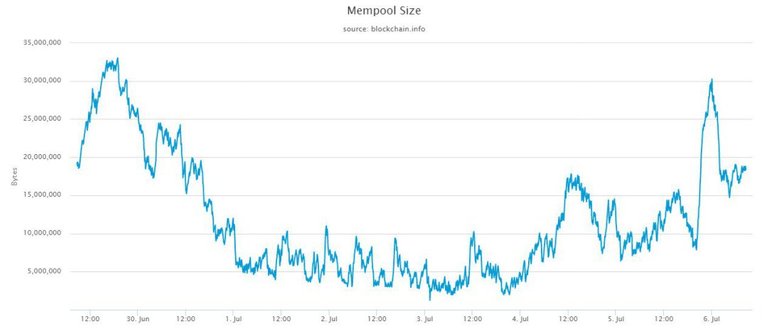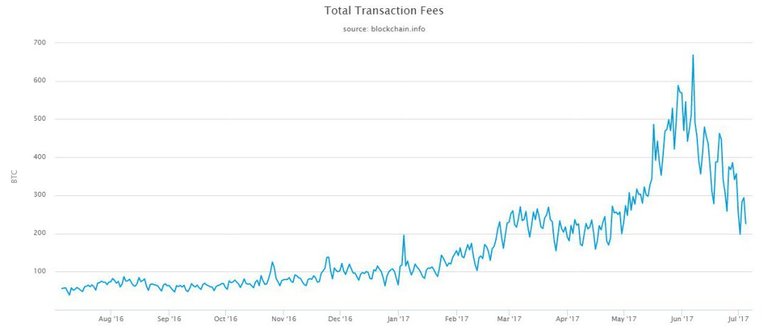The future of bitcoin promises.

During the last few months many users of cryptomonedas have expressed their complaints by the high commissions per transaction demanded in the network Bitcoin. But due to a significant decrease during the last week of pool memory size (mempool), which is the waiting area for confirmation of transactions, rates have started to fall.
More than 90% decreased the size of the mempool of the Bitcoin network, registering 1,908,052 bytes at its lowest point on July 4, when until a week ago it had a size of 32,561,006 bytes. The main consequence of this decrease has been that the calculation of Bitcoin's tariffs of the main portfolios of Bitcoin, such as Blockchain, has decreased. Now the commissions are below $ 1 and it is enough to carry out transactions in 10 minutes.

Commissions and transaction speed have become a real problem for Bitcoin network users since the network became popular. Although it is true that the blocks are still filling, and it has been suggested that the implementation of Lightning Network and SegWit, among other solutions, could improve the network's ability to make reasonable waiting times and tariffs, none of which These solutions have been applied for the moment.
In this sense, Blockchain, which uses a satoshis-by-byte basis to set commissions for users more accurately, has recommended a $ 0.19 per transaction fee for an estimated time of one hour.
Charlie Shrem, a pioneer of Bitcoin and operator of multimonedero Jaxx, published on Twitter that he made a personal transaction of 2,000 dollars in bitcoins that was confirmed in the first 6 minutes and had a cost of 0.25 cents.

In fact, this means that the total value of the tariff paid to the miners for transacting in the chain has also decreased. The charts show that on June 6 they managed to raise 668 BTC, in contrast to the 294BTC collected on July 3. There are several factors that are involved in these movements.

First, it should be noted that during the month of May the large number of unconfirmed transactions caused congestion within the Bitcoin network, causing the pool memory of the network to reach a historical maximum of 120GB. Of course, delays in the speed of transactions had an impact on the miners' fees. The fees paid were $ 2.5.
Even this increase in pool memory size was used as an argument to accelerate the activation of SegWit, when it was an option that dominated voting in the community, due to the difficulties of scalability that appeared the last two months.
For two weeks, between June 1 and May 15, pool memory size maintained these magnitudes mainly due to the fact that the code could not delete transactions during each weekend in that period of time, Although the number of transactions in the Bitcoin blockchain had also declined. As a result, pool memory expanded and stored more and more transactions.
Abruptly, pool memory size decreased over a period of 21 days from 120GB to 20GB. The analyst and researcher Ben Verret suggested in his Twitter account that this decrease in the size of pool memory is due to a pause in the network spam and especially to the proximity of the activation of SegWit.
If you are interested in everything related to the world of Bitcoin and the cryptocurrency, follow us at STEEMIT.
Always find out something new.